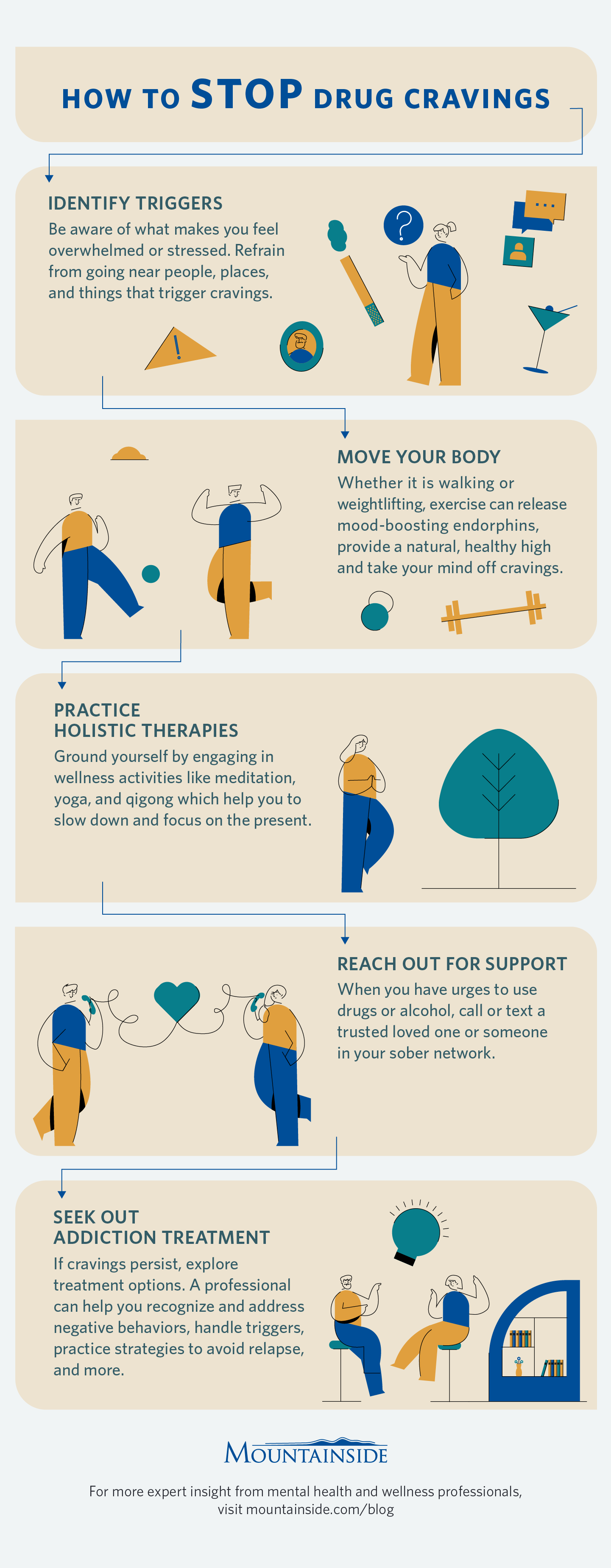Cocaine, also known as coke, crack, and snow, is a highly addictive stimulant drug that causes severe psychological dependence. After repeated misuse, your brain becomes rewired, craving more cocaine to reach a euphoric high. After the high is over, you have an emotional crash and experience uncomfortable withdrawal symptoms and drug cravings. If you are in early recovery or trying to stop using cocaine, these intense desires can be very hard to ignore. Sometimes, months after getting sober, you can still experience cocaine cravings. Below are five ways you can reduce these cravings and live a more fulfilling life free from substances.
1. Identify Triggers
Although cravings can happen randomly, oftentimes, cocaine cravings happen because of certain triggers. When you encounter a trigger, you might feel overwhelmed with emotions, anxiety, and stress. Triggers can stem from memories associated with your past cocaine use. For example, if you pass by a club you and your friends often visited where you drank alcohol or used cocaine, that may be one area you want to stay away from. Simply passing a familiar location or a group of old friends from your active addiction days can be enough to disrupt all of your progress made in recovery. Since triggers can be extremely overpowering, it’s important to avoid these situations to reduce the risk of a relapse.
To limit cocaine cravings, it is important to identify what kinds of people, places, and things trigger a desire to use. From there, you can make a conscious effort to refrain from those situations so you are not tempted to use the drug. Anything or anyone who does not support your sobriety and poses a danger to your recovery should be avoided.
2. Keep Busy with Physical Activity
If you are in early recovery, you might find yourself dealing with cocaine cravings and trying to fill your days with meaningful activities. Cocaine is known for causing euphoric highs and making users feel more energetic and sociable. If you used cocaine for its stimulating properties, exercise can be a great way to experience a natural and healthy high. Physical activity releases a burst of endorphins that contribute to that post-workout rush athletes strive for. In addition, working out can provide amazing benefits for your heart, increasing energy levels throughout the day.
When you were in active addiction, your days were probably centered around using cocaine and finding more of it. After quitting cocaine, you are left with more free time than ever before. Exercise can give your days structure, boost your mood, and serve as a great stress-reliever. Stress can actually be one of the biggest reasons for experiencing a recurrence, otherwise known as a relapse.
3. Try Holistic Therapies
Studies have shown that, with long-term use, cocaine actually increases stress hormones in the brain. If someone has misused cocaine for years and then suddenly stops, stress levels are compounded because now they have to deal with cocaine withdrawal and drug cravings as well. One way to alleviate stress and help stop cocaine cravings is to try holistic therapies.
Holistic practices help individuals reconnect with the spiritual side of their wellbeing. They can alleviate stress, anxiety, or other negative emotions which are often some of the underlying reasons that lead people to use substances in the first place. Meditation, for example, can help you stay grounded, encourage a feeling of inner peace, and increase self-esteem. You can practice meditation anywhere for a few minutes a day by closing your eyes and focusing on your breath. By doing so, you become more self-aware and learn to control negative thought patterns. Intrusive thoughts including cravings might appear as you meditate, but by focusing on your breath, you stay in the present and better control what does and does not enter your mind. Yoga and qigong are other wellness practices that help to minimize stress and anxiety by helping you concentrate on the present.
4. Reach Out for Support
Know that you don’t have to go through recovery on your own. Developing a reliable support network is important to get through challenging times. Make sure the people in your support network respect your sobriety and have your best interest in mind. Find a friend or loved one you can confide in and ask them for help when your cravings get too intense. They will not only keep you accountable but they can give you the encouragement you need to resist your cravings.
If your loved ones are not available or cannot fully support your needs, then join virtual or in-person support groups in your area to talk to people with similar experiences. Peers in your recovery community will understand your unique challenges, be able to share practical advice, and recognize your sobriety milestones and help you celebrate them.
5. Seek Cocaine Addiction Treatment
Managing cocaine cravings among other daily stressors can be difficult. If the cravings become unbearable and you fear you will resort back to using drugs again, enroll in a drug rehab program. Drug rehabilitation centers provide you with professional support to not only battle cocaine withdrawal symptoms, but to positively change your life. While in treatment, you will discover the root causes of your past substance use and learn how to incorporate healthy habits into your lifestyle. Addiction treatment will help you proactively recognize and address negative behaviors, handle triggers, practice strategies to avoid relapse, and develop constructive ways to deal with setbacks.
And of course, one more way to stop cocaine cravings is to abstain from all drugs and alcohol — not just cocaine. Using other substances will only make your cocaine cravings stronger.
If you or a loved one is struggling with addiction, Mountainside can help.
Click here or call (888) 833-4676 to speak with one of our addiction treatment experts.

 By
By 








